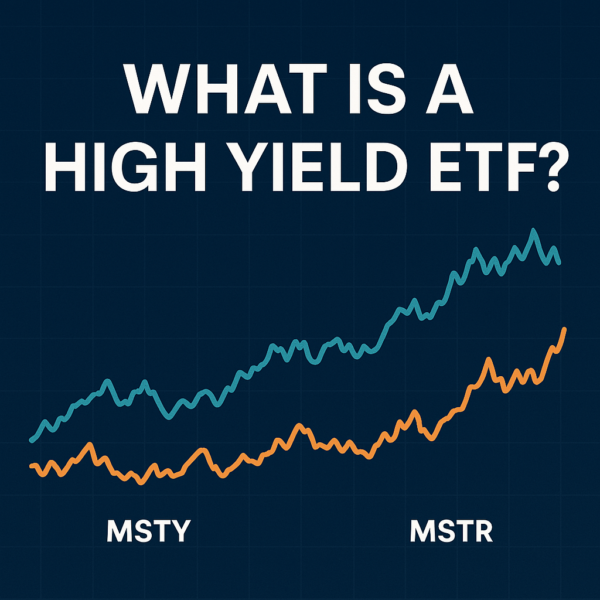What Is a Small Cap ETF?
For investors who love the appeal of small cap stocks but could do without the risk associated with them, a small cap ETF is a great investment vehicle. ETFs are a great hedge against the volatility of any one company and are perfect for mitigating the ups and downs of burgeoning companies. But is a pure small cap ETF enough to mitigate the risks of investing in these companies?
Investors need a keen understanding of both ETFs and small cap stocks before investing in a product that combines their risks and rewards. While it’s certainly a hedge against volatility, an ETF isn’t a pure safeguard against small cap instability. Here’s how to approach small cap investing through an ETF investment vehicle.

Small Cap ETF Definition
A small cap ETF is a basket of stocks that’s composed of companies with market capitalizations of less than $2 billion each. Assets managed within the ETF will be well over the small cap threshold, but the underlying capitalization of its holdings will all represent small companies.
The purpose of small cap ETFs is threefold. First, they provide small cap exposure to investors who don’t choose to invest specifically at this level. Second, they hedge against the volatility and risk that comes with small cap companies. Finally, like all ETFs, they provide diversification. Each ETF you choose to invest in should check all three of these boxes.
As a side note, it’s important to realize that these ETFs aren’t restricted to specific companies or cap sizes. There are “pure” options that list only small cap companies. More often than not, though, funds will mix in a few midcap and even smaller large cap companies to balance the fund – or because they’re applicable. Make sure to review the assets under management of every fund before investing.
The Best by Performance
There are quite a few small cap ETFs out there. It’s easy to just group a bunch of these companies together into an ETF; it is something entirely different to put together a basket of winners. Most successful funds oversee a group of diverse small caps that flirt with midcap status. Here’s a peek at some of the best-performing small cap ETFs on the market today.
- Schwab U.S. Small-Cap ETF (SCHA)
- SPDR S&P 600 Small Cap ETF (SLY)
- Vanguard S&P Small-Cap 600 ETF (VIOO)
- WisdomTree US SmallCap Earnings ETF (EEES)
- John Hancock Multifactor Small Cap ETF (JHSC)
It’s also important to mention the Russell 1000, Russell 2000 and Russell 3000 indexes. While not ETFs, these are index funds committed to tracking the performance of the market’s smallest companies. Investors looking for stable ways to gain exposure to small cap stocks may also choose to invest in one of these indexes.
ETFs Can Mitigate Volatility
Small cap companies are volatile. While this can mean an uptick in share price on the heels of a win for the company, it can also mean plummeting value when things don’t go right. Not everyone is comfortable with the risk this volatility creates.
ETFs, by nature, hedge against volatility. Because they represent stocks in aggregate, their prices are safeguarded against the fluctuations of any one company. This is a hedge against individual stocks that might otherwise be a roller coaster in your portfolio. Moreover, they represent a second hedge against sector-specific turmoil. If the finance sector suffers a major blow and a couple of small cap financial stocks suffer mightily, the surge of a different sector can stabilize the ETF.
Are These ETFs Safe?
Small cap ETFs are moderate-risk investments, trending toward safe. They carry much less risk than investing in a couple of one-off small cap stocks, but they don’t offer the same upside if you happen to pick companies primed for a growth spurt. Likewise, they’re riskier than investing in a large index like the Russell 2000, which mitigates risk even at the macro level.
Many investors consider ETFs the perfect investment vehicle for small cap stocks. They do a great job of balancing risk and reward. Managed ETFs are a “set it and forget it” type of investment, which is often ideal for investors waiting for small cap companies to grow into their true potential.
It’s worth noting that there are different types of small cap ETFs. Value funds and growth funds represent another fork in the concept of small cap investing. Both rely on the safety of an ETF strategy to mitigate risk and offer different investing philosophies around the potential of burgeoning companies.
The Bottom Line on Small Cap ETFs
These ETFs combine the growth prospects of small cap companies with the stability of ETFs. This combination balances risk and reward for investors and can create exposure to different sectors based on the ETF’s holdings. For investors looking for a lottery ticket, one or two small cap companies might be the play. For those who want to see strong growth over time from well-vetted companies, an ETF is the way to go.
To stay up to date on the latest stock movements and wealth building strategies, sign up for the Liberty Through Wealth e-letter below. You can build a stable portfolio that has a ton of upside for your future as an investor.
It’s worth deciding on the type of exposure you want before going in on a small cap ETF. Choose one that fits with your core investing thesis – be it growth or value investing.
Read Next: What is a Small Cap Growth ETF?





